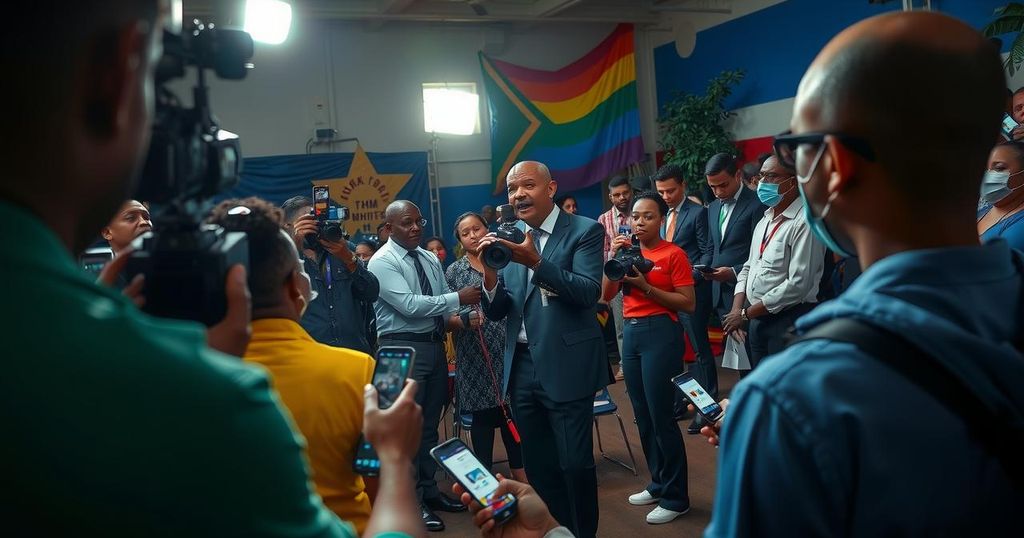Mauritius Elections: Navigating Scandals and Social Tensions

Mauritius is set to hold its 12th national election amid serious allegations of wiretapping involving government officials. Approximately one million eligible voters will cast their ballots in a politically charged atmosphere affected by leaked recordings and a subsequent social media ban. Key candidates include Prime Minister Pravind Kumar Jugnauth and opposition leaders Navin Ramgoolam and Nando Bodha, with high living costs and crime dominating the campaign agenda.
Mauritius is poised to conduct its 12th national election amidst serious allegations concerning covert wiretapping operations reportedly involving government officials. On the upcoming election day, around one million eligible voters will participate in a voting process critical for the future of the country. The atmosphere surrounding the elections has been significantly impacted by the release of incriminating audio recordings, igniting intense political agitation and prompting a temporary ban on social media. This ban, instituted under the pretext of preserving national security, was met with public outcry and was subsequently reversed by the government. Historically, Mauritius has celebrated strong democratic governance since its independence from Britain in 1968, marked by high voter turnout typically around 80%. However, the current scandal is overshadowing the electoral climate, leading to heightened tensions as parties prepare to vie for control. Prime Minister Pravind Kumar Jugnauth, representing the ruling Militant Socialist Movement (MSM), aims for re-election against key opposition figures, including Navin Ramgoolam from the Labour Party and Nando Bodha from Linion Reform. The backdrop for this election is complex, with issues regarding economic recovery post-COVID-19—particularly high living costs—emerging as central topics of concern. Following the pandemic, the government has promised financial incentives such as bonuses and tax reductions to regain the trust of voters. Additionally, widespread apprehensions regarding crime, drug abuse, and government transparency are influencing public sentiment and campaign strategies. As Mauritians prepare to vote, the outcome remains particularly uncertain amid the controversies, including the criminal investigation into the wiretapping scandal initiated by Prime Minister Jugnauth.
The article discusses the current political landscape in Mauritius as the nation prepares for a significant election marked by a wiretapping scandal involving high-ranking officials. With its reputation as a stable democracy, the country is facing unprecedented challenges, including allegations of corruption and the suppression of civil rights, which have emerged as major issues. The political environment is further complicated by economic factors such as high living costs and crime, affecting public perception and voter choices.
In summary, Mauritius’ upcoming elections represent a pivotal moment for the nation’s democratic integrity, characterized by serious allegations of governmental misconduct and public dissatisfaction regarding key societal issues. The response to the wiretapping scandal, alongside urgent economic challenges, will likely play a critical role in shaping the electoral outcome. As parties campaign amidst this turbulent backdrop, the implications of the election could have lasting effects on Mauritian democracy and governance.
Original Source: www.aljazeera.com







